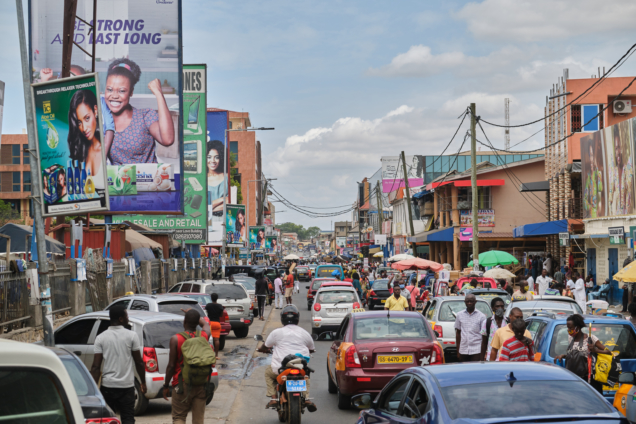The UK government has declared a substantial financial injection aimed at supporting the recruitment and retention of healthcare personnel in three African nations: Kenya, Nigeria, and Ghana.
This initiative is designed to enhance resilience in the face of global health challenges.
A sum of £15 million from the dedicated Official Development Assistance (ODA) budget for the period of 2022 to 2025 will be dedicated to optimizing, constructing, and fortifying the healthcare workforce in these three African countries.
As stated on the UK government's official website, this funding acknowledges the critical role of the healthcare workforce in lower and middle-income countries in enhancing health outcomes and achieving universal health coverage. The aim is to ensure that individuals in Kenya, Nigeria, and Ghana have access to a comprehensive range of healthcare services precisely when they require them.
It has been emphasized that the COVID-19 pandemic underscored the imperative for the UK to collaborate closely with international partners in addressing global health threats.
This has placed significant strain on the NHS, and the pandemic has also exacerbated challenges related to retaining healthcare workers worldwide, all while the demand for healthcare personnel has surged.
Furthermore, it was highlighted that effectively addressing critical workforce issues is essential for bolstering healthcare systems and enhancing global preparedness against future pandemics. This is crucial to ensure the protection of people worldwide, including those in the UK.
The World Health Organization (WHO) has projected a shortage of 10 million healthcare workers globally by the year 2030. This shortage poses a threat to the achievement of universal health coverage on a global scale and has the potential to exacerbate health inequalities worldwide.
According to the Health Minister of the country, Will Quince, highly skilled and resilient staff members serve as the backbone of a robust healthcare service.
“So I’m delighted we can support the training, recruitment and retention of skilled health workforces in Kenya, Nigeria and Ghana."
Will explained that the funding's primary objective is to have a tangible impact on enhancing the effectiveness of healthcare systems in each of the involved nations.
This, in turn, will contribute to improving worldwide readiness to combat pandemics and diminishing disparities in healthcare access.
"The pandemic showed us that patients in the UK are not safe unless the world as a whole is resilient against health threats, and this will help us in delivering on that ambition."
The UK government is also allocating £6 million from its Official Development Assistance (ODA) funding to the World Health Organization (WHO). This money will be used to help strengthen healthcare systems in Kenya, Nigeria, and Ghana.
The goal is to improve things like administrative processes, training opportunities, and staff retention in collaboration with local governments and healthcare stakeholders.
As part of this initiative, the Department of Health and Social Care will also run a £9 million 2-year competitive grant scheme for a non-profit organization.
This organization will coordinate partnership efforts in these countries. The partnership programs will involve connecting UK institutions with local healthcare systems, facilitating skill exchanges, and enhancing educational curricula, regulations, and guidelines in the mentioned African nations.
The organization chosen to oversee and fund these efforts is the Tropical Health and Education Trust (THET).
Their responsibility will be to drive improvements in the quality and retention of healthcare staff in Kenya, Nigeria, and Ghana, with the ultimate aim of providing better healthcare outcomes for patients.
This funding builds upon a previous commitment of £5 million in Ghana, Uganda, and Somaliland to enhance health workforce planning, provide training opportunities for refugees and displaced individuals, and foster collaboration between NHS institutions and local healthcare institutions.
These countries were selected for the funding because they face significant challenges in their healthcare workforce, including high mortality rates and shortages of trained healthcare workers, leading to unemployment among qualified health professionals.
This initiative is part of the larger £15 million Global Health Workforce Programme announced on May 19, 2023, to address these issues and improve healthcare systems in these countries.
Latest Stories
-
2024 Election: I am sad EC disqualified me, but I endorse CPP’s candidate – PNP’s Nabla
17 mins -
I want to build a modern, inclusive country anchored by systems and data – Bawumia to CSOs
18 mins -
Miss Health Ghana 2024: Kujori Esther Cachana crowned new Health Ambassador
25 mins -
Livestream: The manifesto debate on WASH and climate change
32 mins -
Alan Kyerematen saddened by NDC and NPP’s neglect of Krofrom Market in the Ashanti Region
35 mins -
CSIR Executive Director urges farmers to adopt technology for improved farming
49 mins -
Football Impact Africa’s Ghetto Love Initiative inspires change in Teshie
60 mins -
Peter Toobu calls for tighter border security over uncovered weapons at Tema Port
1 hour -
Gov’t has failed its commitment to IPPs – Ablakwa
1 hour -
Sell Chrome to end search monopoly, Google told
1 hour -
KATH to install seven new dialysis machines by end of November
1 hour -
Walewale: Police confiscate 37 bags of cocoa beans suspected of being smuggled out of Ghana
2 hours -
‘Expired’ Rice Scandal: FDA confirms rice was safe for consumption after rigorous lab tests
2 hours -
Many women have experienced intimate partner violence – Angela Dwamena Aboagye
2 hours -
Power challenges persist due to government’s mismanagement of revenues – Okudzeto Ablakwa
3 hours

